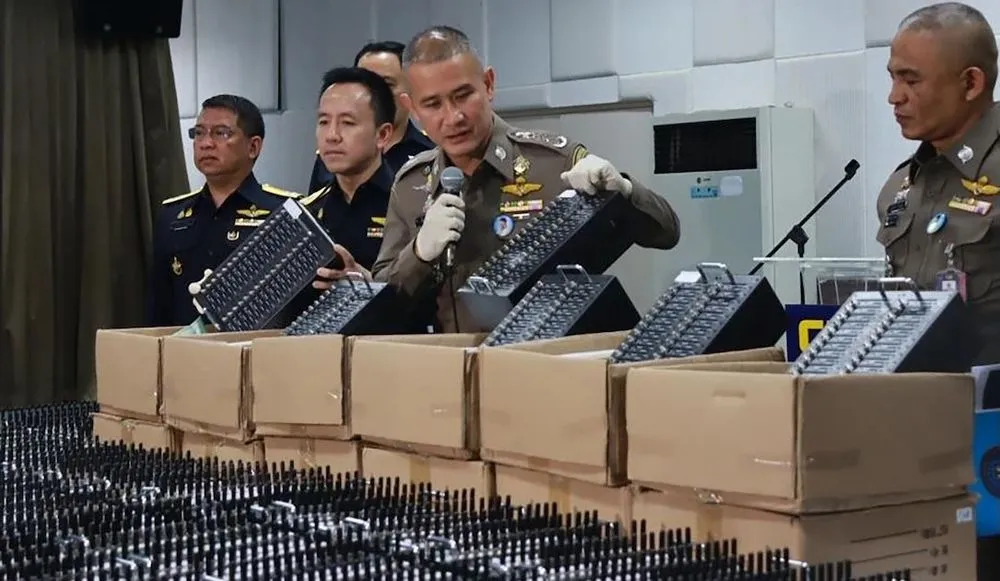Senator presses Musk on Starlink ‘misuse’ by Southeast Asian scammers
Democratic Sen. Maggie Hassan is looking for answers from Elon Musk about the reported use of SpaceX’s Starlink technology by criminal groups running scamming compounds in Southeast Asia.
In a letter on Monday addressed to Musk, the company’s CEO, Hassan requested information “about SpaceX’s efforts to prevent the misuse of Starlink in transnational fraud.”
In February, a Wired investigation found that at least eight scam compounds in Myanmar were using Starlink devices. Over about three months, mobile phones reportedly logged connections to Starlink within compounds more than 40,000 times.
The criminal hubs have proliferated throughout Southeast Asia, especially in Cambodia and Myanmar, and contain thousands of trafficked workers who are forced to carry out internet-enabled scams like “pig butchering” — when a scammer develops a relationship with a victim in order to con them out of money. Scams originating from the region are estimated to have inflicted tens of billions in losses globally and $3.5 billion in the U.S. in 2023 alone.
Thailand has attempted to restrict the illicit industry by cutting off electricity and internet flows to certain areas along the border with Myanmar and Cambodia where compounds are clustered. The criminal groups have adapted by using Starlink, the United Nations Office on Crime and Drugs said in April.
“While SpaceX has stated that it investigates and deactivates Starlink devices in various contexts, it seemingly has not publicly acknowledged the use of Starlink for scams originating in Southeast Asia — or publicly discussed actions the company has taken in response,” wrote Hassan, who represents New Hampshire. “A United Nations report has confirmed that SpaceX can restrict access to Starlink through ‘geofencing,’ making the service unavailable in specific countries or locations, but it is unclear whether the company has done so in Southeast Asia.”
Hassan asked if the company is aware of the reports around Starlink and criminality in the region and asked for an explanation about SpaceX’s policies around restricting access to Starlink.
She also asked if the company has taken any action “in response to … indications of misuse or improper distribution of Starlink devices by purchasers or third-party intermediaries based in Southeast Asia” and how many complaints the company has received around scam networks in the region. She requested a response no later than August 18.
SpaceX did not immediately respond to a request for comment.
James Reddick
has worked as a journalist around the world, including in Lebanon and in Cambodia, where he was Deputy Managing Editor of The Phnom Penh Post. He is also a radio and podcast producer for outlets like Snap Judgment.


